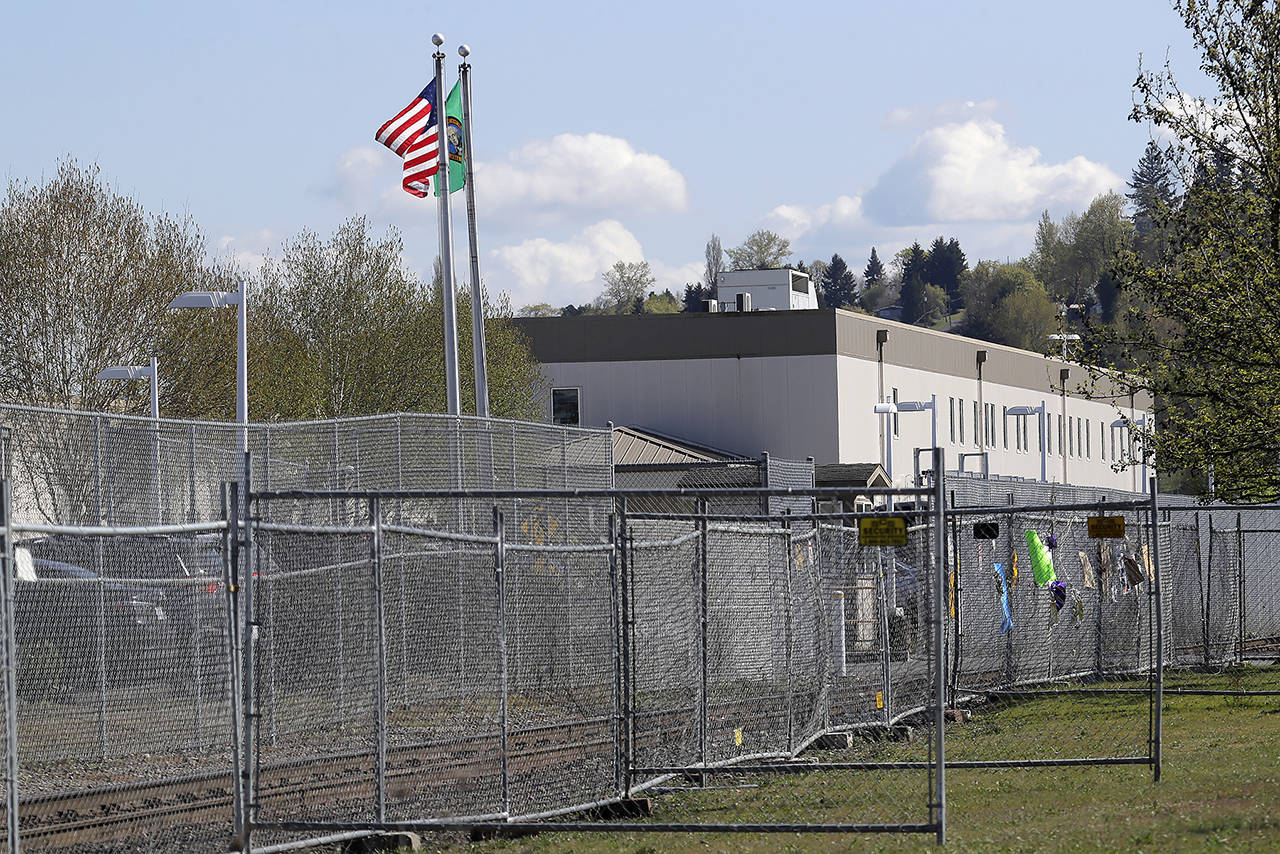By Nina Shapiro / The Seattle Times
SEATTLE — An outbreak of COVID-19 cases that began in early June at the Northwest ICE Processing Center in Tacoma, a facility for detained immigrants, has continued to worsen. Since then, 150 people, including seven guards and a federal health care worker, have tested positive, according to a lawyer monitoring court-ordered government notices of coronavirus cases at the facility.
The virus surge came as the federal government, in an attempt to relieve overcrowding at holding facilities at the southern border, transferred nearly 1,100 immigrants to the Tacoma detention center, according to a document submitted to federal court by the U.S. Attorney’s Office for Western Washington.
While the government released about 570 detainees it deemed at high risk of contracting COVID-19, “the harm is done,” said the attorney watching case notices, Aaron Korthuis of Northwest Immigrant Rights Project.
Virtually all of those who contracted the virus tested positive shortly after arriving at the Tacoma facility, leading Korthuis and his legal rights organization to contend the government is not taking adequate precautions when transferring people.
Cristian Amaya Vargas, a 33-year-old asylum-seeker from Colombia who tested positive for the virus in the detention center, said he experienced chills, fever, nausea and pneumonia, and “was afraid I could die.” He was briefly hospitalized and eventually released.
The Northwest Immigrant Rights Project and the American Civil Liberties Union, which are representing detainees in a federal class action lawsuit over safety protocols at the center, contend the government is not following Centers for Disease Control and Prevention guidance in its transfers and has asked the court for a temporary restraining order compelling compliance.
The government says in legal documents its protocols “may not follow the ideal scenario” outlined by the CDC in its guidance to correctional and detention facilities, but contends it meets the federal health agency’s recommendations.
“Ideally, testing and a 14-day quarantine would occur at the originating facility before transfer and again at the destination facility at intake; at a minimum it should occur at one facility or the other,” the CDC guidance says.
Immigration and Customs Enforcement verbally screens detainees for COVID-19 symptoms and takes their temperatures before putting them on flights. But it does not routinely test them if they are asymptomatic or do not report being exposed to someone with COVID-19, according to legal documents. Even rapid testing, which takes about 15 minutes, would be unworkable when transferring large numbers, the government contends.
ICE also does not segregate people during these transfers according to whether they have symptoms or have been exposed, according to Korthuis and Amaya Vargas’ account of his experience.
Still coughing nearly three weeks after his release, Amaya Vargas, who has asthma, said he was put on a plane July 6 with between 100 and 120 detainees. One man had been showing signs of COVID-19 in the border holding facility where they were housed but was not separated from the others and Amaya Vargas said he sat across the aisle from him.
They also sat close together on buses used to take detainees to the plane in Texas, and from Yakima, where they landed, to Tacoma, Amaya Vargas said. He also said some of the officials overseeing the transfer were not wearing masks, though detainees were.
After arriving at the Tacoma detention center, Amaya Vargas, who studied logistics management before leaving Colombia, said everybody on the flight was initially put in one room together while they received medical examinations, including a COVID-19 test. Around eight hours later, at 3 or 4 a.m., he was moved to a cell with another detainee.
Three days later, he said, he was told he had tested positive for COVID-19. A cough turned into more severe symptoms. He wasn’t eating and couldn’t communicate with medical staff because of a language barrier. Nurses came to check on him, but he said felt alone. His wife, with whom he had crossed the Rio Grande to get to the U.S., was in another detention center thousands of miles away.
The detention center sent Amaya Vargas to the hospital, where he was diagnosed with pneumonia and then was returned to the detention center for treatment. Four days later, he was released.
The Northwest Immigrant Rights Project and the ACLU also object to the way the detention center houses new arrivals together. After processing, they are usually put in cells holding up to four people, but twice recent transfers have been placed in open dorm units with up to 80 beds.
The government says it did so once by mistake. The other time, it said, was less risky because the new arrivals had come from another ICE facility, where detainees are generally tested before leaving, unlike those transferred from holding facilities operated by Customs and Border Protection.
The government and the GEO Group, the private corporation that runs the detention center under ICE’s supervision, also say they have taken extensive safety precautions. New arrivals are kept separate from the general population until twice testing negative for COVID-19. And everyone held at the facility — the average population last month was 571 — is given a chance to be vaccinated.
Talk to us
> Give us your news tips.
> Send us a letter to the editor.
> More Herald contact information.

























